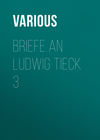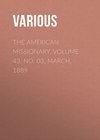Buch lesen: «Mrs. Whittelsey's Magazine for Mothers and Daughters», Seite 26
FEMALE EDUCATION—PHYSICAL TRAINING
BY REV. S.W. FISHER
I have presupposed three things in reference to education. The field which it covers is also three-fold—the body, the intellect, and the heart.
The body is the living temple of the soul. It is more than a casket for the preservation of the jewel; it is more than the setting of the diamond; it is more even than an exquisitely-constructed dwelling wherein the soul lives, and works and worships. It is a living, sensitive agent, into which the spirit pours its own life, through which it communes with all external nature, and receives the effluxes of God streaming from a material creation. It is the admirable organ through which the man sends forth his influence either to bless and vivify, or to curse and wither. By it, the immortal mind converts deserts into gardens, creates the forms of art, sways senates, and sheds its plastic presence over social life. The senses are the finely-wrought gates through which knowledge enters the sublime dome of thought; while the eye, the tongue, the hand, are the instruments of the Spirit's power over the outer world. The soul incarnate in such a body, enjoys a living medium of reciprocal communication between itself and all things without. Meanwhile the body itself does not arrive here mature in its powers; nor does it spring suddenly from the imbecility of the infant to the strength of the man. By slow development, by a gradual growth, in analogy with that of a tree whose life is protracted, it rises, after years of existence, to its appointed stature. Advancing thus slowly, it affords ample time for its full and free development.
In this physical training, there are two points of special importance. The first is the removal of all unnatural restraints and the pressure of unhealthy customs; the second, is the opportunity, the motive and the habit of free exercise in the pure air of heaven. These, as causes of health and fine physical development, are interwoven as are their opposites. In the progress of society from barbarism to refinement, it has often been the case that men, in departing from what was savage, have lost that which was natural; and in their ascent from the rude have left behind that which was essential to the highest civilization. In escaping from the nakedness of the barbarian, they have sometimes carried dress to an extreme of art which renders it untrue to nature and productive of manifold evils. In ascending from the simple and rude gastronomy of the savage, they have brought the art of cookery to such an excess of luxury as to enervate society by merely factitious appetites. In the formation of habits of life, social intercourse and amusements adapted to a refined state, they have introduced many things at war with the healthful development of both body and mind. The manly exercises of swimming, skating, riding, hunting, ball playing; the bracing walk in storm and sunshine; the free ramble over hill and dale, all adapted to develop an independent, self-relying character; with the occasional reunion where wit, science, healthful industry and serene piety shed their benedictions; associating that which is free and bold with the refined and sacred; all these are, in many cases, displaced by frivolous and less healthful excitements. Our girls and boys, prematurely exalted into young gentlemen and ladies, are tutored by dancing masters; their manners disciplined into an artificial stiffness; and the free developments of an open nature formed under the genial influence of truly polite parents—the finest discipline in the world—arrested by the strictures of a purely conventional regimen, in which the laws of health and the higher spiritual life seem never to have been consulted.
With such a physical training, associated with a corresponding education of the mind and heart, they are ripe for the customs and fashions of life in harmony therewith; and totally averse to the purer, manlier and nobler duties and pleasures of a better state of society. To dress and exhibit themselves; to crowd the saloon of every foreign trifler, who, under the abused name of art, and for the sake of gold, seeks to minister to us those meretricious excitements which associate themselves with declining states and artificial forms of life; to waste the most precious hours of night, set apart by the God of nature for repose, in dancing, eating, drinking, and revelry, follow naturally enough upon such training. Then in the rear, come disease of body and mind, broken constitutions and broken hearts; and last of all, with grim majesty, death, prematurely summoned, avenges this violation of the laws of nature upon the miserable victims, and quenches the glare of this brilliant day in the darkness of the tomb. How utterly different is such training and such modes of life consequent upon it, from those which are dictated by a thorough understanding of our nature and the great purposes of our existence. For in all these things we shall find there exists a connection sufficiently obvious between the right education of the spirit and the body; and that so strong is their mutual influence as to render it of great importance to care for them both in harmony with each other. Then shall we regard the perfection of the form and the vigor of our bodily powers. Casting away whatever did not consist with the health and finer developments of the physical system, we should pursue that course of education which best prepared the body for its grand work as the living agent of the spirit.
In considering physical training it is allowable for us to look both at beauty and intellectual power. A noble form in man; a fine, beautiful, healthful form in woman, are desirable for their outward influence. Created susceptible of deep impressions from external appearances, it is neither religion nor good sense to undervalue them. That men generally have over-estimated their worth, is a reason why we should reduce them to their true position, and not sink them below it. The palace of the soul should befit its possessor. And as God has taken pleasure in scattering images of beauty all over the earth, and made us susceptible of pleasure therefrom, it is right that in the education of our children we should seek for the unfolding of the noblest and most beautiful forms. Shall we beautify our dwellings; adorn our grounds with plants, flowers, and trees of various excellence; improve the breed of our cattle, and yet care not for the constitutions and forms of those who are on earth the master-pieces of divine wisdom and the possessors of all this goodly heritage? Most of all, however, as the agent of the spirit, should we seek to rear our children in all healthful customs and invigorating pursuits. It is possible, indeed, that a mind of gigantic powers may sometimes dwell in a feeble frame, swayed to and fro by every breath of air. But we are sure that such a physical state is the source of manifold vexations, pains and loss of power. It is a state which the possessor never covets; which oppresses him with the consciousness of an energy he is forbidden to put forth, and a force for moving the world crippled by the impediment of a frail body. For the full discharge of all the duties of life; for the affording to our mental powers a fair field for their action; and especially for the education and advancement of succeeding generations, it is indispensable the vigor of the body should correspond to the vigor of the intellect, so far as to constitute the one the most efficient agent of the other. It has rarely been taken into view, that, aside from the personal benefits of health in the greater power of present action, the intense intellects and feeble frames of one generation are a ruinous draft upon both the physical and mental powers of that which succeeds. A race of overwrought brains in enfeebled bodies must be recruited from a more healthful stock, or their posterity will, in time, decline into idiocy or cease from the earth. The process of degeneracy, by an infallible law, will pass from the body to the intellect; and the descendant of a Luther or a Bacon go down to the level of the most stupid boor that drives his oxen over the sands of southern Africa.
Original
INORDINATE GRIEF THE EFFECT OF AN UNSUBDUED WILL
I called on a friend a few months since, who for a full year had been watching with maternal solicitude over an invalid daughter still in the morning of life, upon whom had been lavished all the fond caresses of parental love and tenderness. Every advantage which wealth, and the means of education could impart to qualify her for happiness in this life had been hers—nor had her religious culture been entirely overlooked.
In her father's family there had been little effort made to instill into the minds of their children the principles of holy living, and it was felt that there was but little necessity to give them habits of self-denial or self-reliance.
This daughter, notwithstanding her happy childhood in having all her wants anticipated, and upon whose pathway the sun had shone most brightly, was now, like an unsubdued child, under a most painful infliction of the rod of God.
Two years previous to this time, during a revival of religion, she publicly covenanted to walk in all the statutes and ordinances of God's Word and house, blamelessly. Thus was she married to Christ, and she then felt, and her friends felt, that she had chosen Christ to be the guide of her youth.
But how could she be expected, never having had her will thoroughly subdued, or been called to bear any yoke or burden, fully to understand, or to realize what was implied, or required in becoming a disciple of Christ, so that she could at once fully adopt the language,
"Jesus, I my cross have taken,
All to leave and follow thee,
Naked, poor, despised, forsaken,
Thou from hence my all shall be."
Just one year from her espousal to Christ the village of – was all excitement, on an occasion which had called the young and the middle-aged to the house of her father,—the wealthy Mr. G–, when this lovely daughter was to be united in marriage to the accomplished, the graceful, the pious Mr. L–, a universal favorite with persons of all ages and ranks. A short time previous to his union to the young and beautiful belle of –, he had, under most favorable auspices, commenced a lucrative business in the city of –.
Immediately after the nuptial ceremony, Mr. L– accompanied his bride to the Falls of Niagara, that favorite place of resort on such memorable occasions. They were now all the world to each other. Alas, how utterly, for a time, did they overlook the injunction, "Little children, keep yourselves from idols." Nor did they for once even dream how insensibly the streams of God's bounty and goodness were withdrawing their hearts from the fountain of all blessedness and perfection.
On their return from this delightful excursion, this envied young husband was soon found at his post of business, surrounded by numerous friends all eager to aid and encourage him on in his preparations to welcome to his home and his heart, his darling "wife." Oh, how sweet to him did that treasured name sound, when greeted by his young friends, and the question was asked, "How is your wife?" "When do you expect your wife?" Never, he felt, was there another more truly blessed.
How sudden must have been the transition, for the summons came, as it were, in a moment, "The Master has come, and calleth for thee." Young Mr. L– had been in the city but two days, when retiring to his bed, he was suddenly siezed with a bilious attack, and in a few brief hours, even before his friends could reach his bed-side, he was wrapped in the habiliments of the grave. His last faint farewell was uttered in hurried and broken accents, just as he expired, "Tell her that Jesus makes me willing"—"makes me willing."
In his ready, cheerful, and manly willingness to obey the Master's call, though so sudden, we see the blessed influence of early parental discipline—absolute unconditional submission to parental authority.
Truly this was a most sad and unexpected reverse for that youthful and happy bride. Her face at once became as pale and almost marble-like, as the icy hand of death had made that of her husband's. No wonder if this world should now seem to her as a barren wilderness. No wonder if her thoughts, for a time, should brood mournfully over the words, "Lover and friend hast thou put far from me, and mine acquaintance into darkness." No wonder if to her desolate heart, solitude, and gloom, and the grave, should, for a season, be her chosen themes of contemplation. She does well to grieve. There is nothing wrong in the mourner's tears. We have the example of Jesus in such an expression—tears are Nature's own sweet relief. It is safe—yes, it is well to bleed when our limbs are taken from our side.
But let such as mourn remember, in all cases of bereavement, it is God, whose discipline is strictly parental, hath done it, and "He doeth all things well." How sad it is when the bereaved, who are not called to mourn as those who have no hope, allow their thoughts to find a lodgment only in the grave. How widely different had been the condition of this youthful mourner, if, instead of shutting herself up in her chamber, taking to her bed, chiefly, for a full year refusing to be comforted—had she dwelt more upon that touching "farewell" to her, receiving it as a beam of light and love from the spirit land, inviting her to the contemplation of heavenly themes. Had she rather considered her departed companion as favored in this early call to glory,—had she considered the passage in Isaiah 57:1, "The righteous are taken away from the evil."—why did she not meekly and penitently reflect, that as God does not willingly afflict, he must have had some special design in this severe chastisement upon her. Had her mind been open to conviction—had she been bowed down under a sense of sin—would she not have inquired whether the blessed Saviour, perceiving the lurking danger there was to this young couple, from a disposition to find their heaven upon earth, to seek their chief happiness in each other, had not with the voice of love and tender compassion said to her husband, "The Master hath need of thee, come up hither." Had her heart been right with God, as she contemplated her departed friend in his new-born zeal to honor and glorify his Redeemer, flying on swift wings to perform Heaven's mandates, would she not resolve, by the grace of God, to emulate him in his greater efforts to save lost souls, for whom Christ died? Were not the same motives set before her, by his death, to seek a new and holy life? Was not the same grace—the same strength proffered to her, which, if accepted and improved aright, would have enabled her to deny herself—to take up her cross and to follow Jesus whithersoever he might see fit to lead her?
But, alas, this was in nowise her happy experience. On the contrary, she turned away from the consolations proffered to her in God's blessed Word, and by his Holy Spirit, and in the teachings of that last touching "farewell."
May we not suppose that her husband, on finding himself liberated from the trappings of earth, from sin and temptation, as his thoughts would naturally revert to the friends he had left behind—finding his chosen, bosom friend, a mere clod of clay, sunk down in a state of hopeless misery and sorrow, at his loss, having no sympathy with him in his new and blessed abode, and in his more exalted employments and purer enjoyments, would he not rather bless God, more ardently, that he was so quickly removed from such chilling, blighting earth-born influences as she might have exerted over him?
Oh, that this youthful mourner might now hear that voice of God to his chosen people, "Ye have compassed this mountain long enough—turn you northward." God grant that the past time of her life may suffice that she has "wrought the will of the flesh." We most earnestly commend to her prayerful contemplation the last words of our blessed Saviour to his disciples, "In my Father's house are many mansions." I go to prepare a place for you—just such a mansion—such a place as each ransomed soul, by improving the discipline of God—by holy and self-denying efforts in this life, to do his will, is fitted to fill, and enjoy.
And so it will ever be with the heirs of salvation, while they remain in a world of sin and temptation. They are daily and hourly working out their salvation with fear and with trembling, while God is working in them to will and to do of his good pleasure. The improvement which is made of afflictions has a great deal to do in this process.
And thus, too, will it be with those who wilfully, or even thoughtlessly neglect the great salvation—those who reject the overtures of pardoning mercy and salvation by Christ. They will hereafter know and acknowledge that "they knew their duty but they did it not." It is said that "Judas went to his own place"—and that "Dives made his bed in hell." And herein will these words of the poet be strikingly fulfilled in every human soul—
"'Tis not the whole of life to live,
Nor all of death to die."
Original
CHILDREN'S APPREHENSION OF THE POWER OF PRAYER
While visiting in the family of Rev. Mr. F–, one morning as we were quietly seated at the breakfast table, his two little boys, Willie and Georgie were seated between their father and mother. All at once Georgie, the youngest, a child of five years, reached his head forward, and in a half-whisper said to his brother, "Willie, Willie, if you were going a journey, which would you give up, your breakfast or your prayers?"
Willie replied, "I should want both."
"But," said the little fellow, still more earnestly, "What if you couldn't have both, then which would you give up?"
"I would give up my breakfast," said Willie.
The little urchin said in an undertone, "I think mother would take something along in her bag." There was certainly a good "look out" for two worlds.
A mother who resides near me, and has a large family of small children, related to me the following circumstance of her eldest boy, when quite young. From the time her children began to talk, she accustomed them, each in their turn, to kneel by her side, on rising and retiring each morning and evening, and repeat to her their little prayers.
One day when her eldest boy, as she thought, was old enough to comprehend her, she said to him rather seriously, "My son, there is one kind of prayer to God to which I have not directed your attention. It is called 'secret prayer.' The direction and encouragement for this kind of prayer is found in the passage, 'Enter into thy closet and shut to thy door, and pray to thy Father which is in heaven, and thy Father which seeth in secret shall reward thee openly.' Now do you not desire to obtain this open reward. If you would like a closet of your own, there is a little retired place near my bed-room—you can go there each day by yourself, and shut your door as directed."
One day, not long after, the child was gone some time; his mother did not like to accuse him of having trifled on so serious an occasion, for he was a remarkably conscientious and honest boy—and she said to him, "Frank, you have been gone so long I fear you may have been using 'vain repetitions.'"
The color mantled at once in the little fellow's cheeks, and almost ready to cry, he said, "Mother, when aunt Mary left us yesterday, she said that she and the children would be exposed to many dangers during the voyage, and she asked me to pray for them, and it took me a good while."
I was told by a friend, of a group of little boys when visiting a little companion, all seated on the floor near each other, looking at some pictures. They came to one representing Daniel in the den of lions. It was noticed that the lions were not chained, and yet they were in a reposing posture. None seemed to understand how this was. One little boy said to another, "Ah, wouldn't you be afraid to be put into a den of lions?" "Oh, yes," was the reply. And so the question went all round, eliciting the same answer. At last the youngest of the party reached himself forward and pulled his brother by the sleeve, saying, "Johnny, Johnny, if lions are afraid of praying people, they'd be afraid of mother—wouldn't they? And she wouldn't be afraid of them, for she says we needn't fear anything but sin."
I was acquainted with a family where the following circumstance occurred. The two youngest boys in the family were often trusted to take long walks, and sometimes they were permitted to go over, by themselves, to N–, a distance of nearly four miles, and make a call on their aunt and cousins, who resided there.
One day they came and asked their mother if they might take a long walk. She told them not a very long walk, for that day they had not been as studious and dutiful as usual. They took hold of hands, and without designing to do so at first, it was believed, they ran on very fast till they reached the village of N–, where their aunt lived.
On going to the house, their aunt thought, from their heated appearance, and hurried and disconcerted manner, that they were two "runaways." She, however, welcomed them as usual—invited them to partake of some fine baked apples and new bread and milk—quite a new treat to city boys—but N–, the eldest, declined the invitation. She then proposed to them to go to the school-house, which was near by, and see their cousins. This, too, N– declined. He said to his brother, "Charley, we must go home." And they took hold of hands and ran all the way as fast as possible, and immediately on entering the house, their faces as red as scarlet, N– confessed to his mother where they had been, and asked her forgiveness. This being granted, N– could not be happy. He said, weeping, "Mother, will you go up stairs with us and pray with us?" She did so, with a grateful heart, and sought pardon for them. N– did the same. When it came Charley's turn to pray, he made an ordinary prayer—when his brother repeatedly touched him, and in a low whisper he said, "Charley, why don't you repent—why don't you repent?"
A very little child, not two years old, always seemed delighted to hold her little book at prayer time, and when her father said Amen, she always repeated it after him aloud. One day she seemed very uneasy during prayer time, and though she made great resistance, she was taken out of the room. She insisted on going back to the drawing-room, and the chairs being still in the order in which the family had been seated during prayer time, the little creature went by the side of each, and folding her little hands, she repeated "Amen," "Amen," until she had been to each one. Thus we see it is not so much for want of knowledge, as for a right state of heart, right teachings, right examples, that children do not live and act, speak and think and pray aright.




















